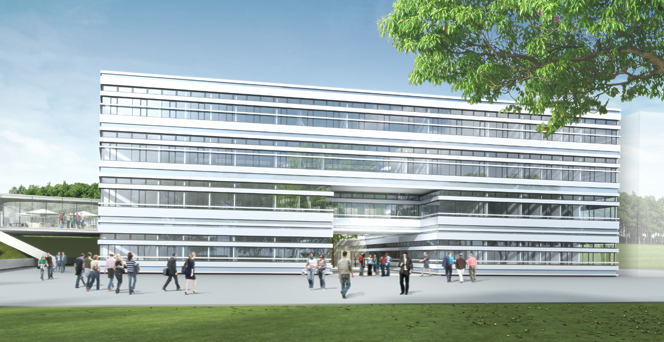URL: https://v1.desy.de/site_www-desy/content/research/cooperations__institutes/cssb/Aufgabenuebersichtsplan_V1_201900816_eng.html/@@siteview
Breadcrumb Navigation

Infectious disease researchers and physicists will join forces at DESY to hunt down pathogens. The new Centre for Structural Systems Biology (CSSB), which is being established on the DESY campus in Hamburg, will be an interdisciplinary centre with partners from several universities and research facilities. Their common goal is to unravel the attack mechanisms of pathogens at the atomic level in order to design tailor-made medication against them.
In our globalized world, infection research is becoming ever more important. Thanks to long-distance travel and global exchange of goods, bacteria and viruses can spread very rapidly. Only by learning how these pathogens function will we be able to effectively protect ourselves against them.
That's the approach pursued by CSSB, where biologists, chemists, medical scientists, physicists and engineers join forces to investigate the interaction of pathogens with their hosts. DESY offers them unique facilities in Germany that provide optimal conditions for structural biology. Using "super microscopes" such as PETRA III, FLASH and European XFEL, reseachers are able to study biological samples in different ways – ranging from structural analysis of single molecules to real-time imaging of processes in living cells – and thus explore the molecular basis of diseases with extremely high spatial and temporal resolution.
New approaches to combat common diseases
At CSSB, researchers decipher, among others, the interaction of proteins in medically relevant infections caused by viruses, bacteria and parasites. A typical research topic is, for example, to unravel the mechanism by which the malaria parasite enters the red blood cells. This is an extremely complex process involving not only one but a variety of proteins, with many fundamental questions still to be resolved. Using DESY's state-of-the-art light sources, the CSSB partners develop new interdisciplinary approaches in the fight against common diseases caused by infections.
Bernhard Nocht Institute for Tropical Medicine
Deutsches Elektronen-Synchrotron DESY
European Molecular Biology Laboratory EMBL
Forschungszentrum Jülich
Hannover Medical School
Leibniz Institute of Virology
Helmholtz Centre for Infection Research
Research Center Borstel
Universität Hamburg
University Medical Center Hamburg-Eppendorf


